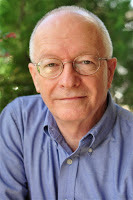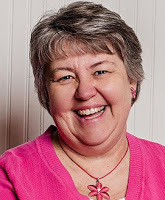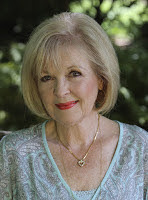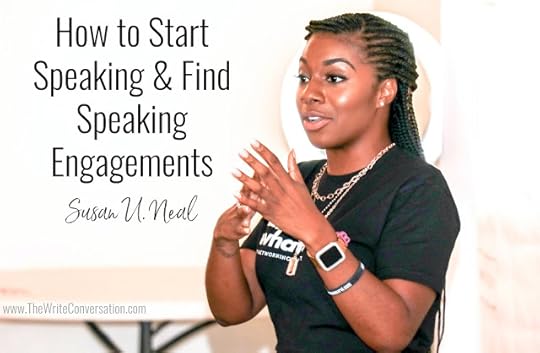Edie Melson's Blog, page 150
September 22, 2021
For Writers: Finding the Right Word, Part 1

by Henry McLaughlin @RiverBendSagas
It seems to me the more writing I do, the more I find myself looking for the right word, the perfect word to convey what I want. Maybe it’s the color of a character’s eyes, or the fury in the sky as a thunderstorm scuds across the sky. It might be the clamor of city streets or the stillness of a forest at sundown. I become a perfectionist, seeking the best word to engage the reader in the story at that moment.
When this happens early in my writing process, like the first or second draft, I’ve sometimes forgotten one of the cardinal rules I learned early in my career—get the first draft out. Don’t stop writing to go searching for perfection. I’ll lose whatever momentum I’ve developed. I’ll stop writing.
Norah Lofts is credited with saying, “I can fix a bad page. I can’t fix a blank page.” This advice has inspired me to keep writing, even when what’s coming out is junk. Why? Because if I’ve got junk on the page, I’ve got something to work with.
I’ve learned that early drafts are the way to give the story idea some solidity. It becomes something tangible I can see and work with. This applies whether you’re an outliner or a pantser. I’ve done both. The outline is the skeleton. The story doesn’t come alive in the flesh until it’s written. The same applies to being a pantser. The idea doesn’t become real until I put words on the page.
When I get to the editing stage is when I look for the right word.
The first tip I want to share is to be specific.
For example, I may have my characters traveling on a road. That’s fine for the early drafts, when getting the story moving is important (no pun intended). In the rewrite and tweaking is when I look for that right word to add clarity, mood, tension, and suspense by showing more detail. What kind of road is it? Is it an interstate? A country back road with potholes and a crumbling shoulder? Main Street in a small town? A boulevard in a big city?
Part of being specific is being descriptive without resorting to overwriting or purple prose.
I also need to keep the genre in mind. If it’s a western, the road might be two ruts carved by wagons. Or the setting may be a contemporary upscale neighborhood that would never use the words like ‘street’ or ‘avenue.’ They might use the names ‘way’ or ‘lane’ or ‘parkway.’
My go-to resource when I’m looking for the right word is J. I. Rodale’s The Synonym Finder. It’s one of the most complete sources for synonyms I’ve found.
The key is to narrow my list of words until I hit the one that best captures what I want the reader to visualize. This applies to more than just roads. I want the words to be appropriate to the setting of the scene, to the characters as they have grown in the story, and to the circumstances they find themselves in.
This especially applies to using the five senses. All too often I find mentees and editing clients using primarily sight and sound. Don’t forget the taste, smell, and feel. One of the most vivid descriptions I’ve read is how a character tasted the coppery smell of blood when he entered a murder scene. I thought, “yeah, I’ve had that same sensation. I just never put the smell of blood with the metallic taste.” Look for ways to describe from a unique sense than the usual ones we use. Think of how to describe the feel of corduroy under our fingers. Or of how tromping through six inches of heavy snow feels in our muscles, with the cold drilling into our cheeks and fingers.
In the next blog, I’ll share a few more tips.
What are some ways you’ve found to be specific in your writing?
TWEETABLEFor Writers: Finding the Right Word from Henry McLaughlin, @RiverBendSagas on @edieMelson (Click to Tweet)
 Henry’s debut novel, Journey to Riverbend, won the 2009 Operation First Novel contest.
Henry’s debut novel, Journey to Riverbend, won the 2009 Operation First Novel contest.Henry edits novels, leads critique groups, and teaches at conferences and workshops. He enjoys mentoring and coaching individual writers.
Connect with Henry on his BLOG, TWITTER and FACEBOOK.
September 21, 2021
Could Binge-Writing be Right for Me?

by DiAnn Mills @DiAnnMills
Are you a candidate for binge-writing? Does the thought of adding thousands of words to your manuscript thrill you from head to toe? Maybe you have no clue what binge-writing means or how it could help you move forward with your dreams and goals.
Many reasons can motivate us to take on the challenge.
We need to jump-start our writing.A deadline approaches us.Our writing group convinces us the concept would be fun.The idea is simply appealing. You’re reading this and decide to try it.How does a writer prepare for this race? Guidelines maximize the binge-writing experience, but don’t hesitate to personalize the process to fit your needs and work preferences.
Time Guidelines
Most binge-writing times are weekends, from Friday evening to Sunday evening. That’s 48 hours.
Sleep 6 hours on Friday and Saturday nights—use an alarm 12 hours
Shower (optional), brush teeth, comb hair, brew coffee 1 hour
Ladies skip the makeup
Guys skip the shave
Use microwaveable meals, eat at your desk, bio-breaks 1 hour
Wear pajamas.
Hire someone to watch and feed the dog, kids, & spouse
no time stealers: social media, music, conversation, texts, or phone
Approximate hours of fingers to the keyboard 34 hours
Prep
Develop a great attitudeSelf-talk is vital for successEncourage any who are joining youMake sure everyone in your immediate family and friends knows you are serious about binge-writing.Conduct research ahead of timeEstablish a word-countStay hydratedMake sure you’re in shapeGrind coffee beans and measure into sealed containers. Determine to drink it black. No time for sugar, cream, or stirring.No pizza delivery. That means answering the door, chatting, etc.During the Binge
FocusTurn off Wi-Fi—No distractionsClose your eyes if necessary. Edits can be fixed laterExceed all your expectationsAfter the Binge
SleepShower and change your clothesCelebrateJournal what you learned for the next binge-writing Together we can have a super-successful, powerful, and productive binge-writing experience. Are you ready to schedule yours?
TWEETABLECould Binge-Writing be Right for Me? Tips from @DiAnnMills on @EdieMelson (Click to Tweet)
 DiAnn Mills is a bestselling author who believes her readers should expect an adventure. She creates action-packed, suspense-filled novels to thrill readers. Her titles have appeared on the CBA and ECPA bestseller lists; won two Christy Awards; and been finalists for the RITA, Daphne Du Maurier, Inspirational Readers’ Choice, and Carol award contests.
DiAnn Mills is a bestselling author who believes her readers should expect an adventure. She creates action-packed, suspense-filled novels to thrill readers. Her titles have appeared on the CBA and ECPA bestseller lists; won two Christy Awards; and been finalists for the RITA, Daphne Du Maurier, Inspirational Readers’ Choice, and Carol award contests. She is the former director of the Blue Ridge Mountain Christian Writers Conference, Mountainside Marketing Retreat, and Mountainside Novelist Retreat with social media specialist Edie Melson. Connect here: DiAnnMills.com
September 20, 2021
How to Write a Blessing

by Lucinda Secrest McDowell @LucindaSMcDowel
My word for the year 2021 is “blessing” and my focus has been to seek to become a blessing to all I encounter. And, as of the ninth month of this stellar year, of course I have failed at that goal. But I do continue to learn so much about the spiritual practice of blessing others, one that has been around since the beginning of time and eternity. God’s Word is full of blessing and I, for one, believe that this practice is needed today more than ever.
Part of becoming a blessing to others is to speak into their souls. Not just any old phrase or word or even encouragement. But words that seek to minister to where they are and that seek to help draw out in them all that God has called them to be and to do.
After quite literally soaking in blessings all during 2020 (which sustained me greatly) I began this new year writing blessings. As I worked through this process, I saw a pattern emerge that you might find helpful if you want to grow in your power to bless. Consult: I would never attempt a blessing without first consulting God’s Word and seeking the Holy Spirit’s discernment through prayer.Connect: I begin a blessing by first connecting to a person’s circumstance, emotions, or felt need. Acknowledging that opens a pathway to receptivity.Communicate: As God guides, I communicate scriptural truth, something I sense to be their strength or bent, and occasionally a daring challenge. Sometimes body language also communicates through appropriate touch.Confirm: Every blessing ultimately comes from God, so I always end with His promises, love, and hope. I prayed a blessing over all my Write Conversation friends here back in February – “May I Bless You Today?” but have also written you another one this week. May you receive this with great joy!
“The Lord your God is with you, the Mighty Warrior who saves. He will take great delight in you; in his love he will no longer rebuke you, but will rejoice over you with singing.” Zephaniah 3.17 NIV
Blessing as God’s Delight
Perhaps you didn’t awaken today thinking “God delights in me.”
May you know it to be true – that gladness reigns as God walks beside you into this new day, ever in your midst.
May the assurance of His deep love and complete care fortify you against all that would cause your heart to falter and to fear.
May you be enveloped within and without – in a cloud of calm as He quietens you with a gentle “Hush.”
And in that silence, may you hear the most exquisite music ever– the melodic notes of deliverance, daring, and delight.
The Lord singing over you – His beloved.TWEETABLEHow to Write a Blessing from @LucindaSMcDowel on @EdieMelson (Click to Tweet)
 Lucinda Secrest McDowell, M.T.S., is a storyteller and seasoned mentor who engages both heart and mind while “Helping You Choose a Life of Serenity & Strength.” A graduate of Gordon-Conwell Theological Seminary and Furman University, McDowell is the author of 15 books and contributing author to 30+ books. Her award-winning books include Soul Strong, Life-Giving Choices, Dwelling Places, and Ordinary Graces. Lucinda, a member of the Redbud Writers Guild and AWSA, received Mt. Hermon “Writer of the Year” award and guest blogs monthly for ‘The Write Conversation.’
Lucinda Secrest McDowell, M.T.S., is a storyteller and seasoned mentor who engages both heart and mind while “Helping You Choose a Life of Serenity & Strength.” A graduate of Gordon-Conwell Theological Seminary and Furman University, McDowell is the author of 15 books and contributing author to 30+ books. Her award-winning books include Soul Strong, Life-Giving Choices, Dwelling Places, and Ordinary Graces. Lucinda, a member of the Redbud Writers Guild and AWSA, received Mt. Hermon “Writer of the Year” award and guest blogs monthly for ‘The Write Conversation.’ Whether coaching writers and speakers, pouring into young mamas, or leading a restorative day of prayer, she is energized by investing in people of all ages. As a communications teacher, she has served on the faculty of Speak Up Conference, Mount Hermon Christian Writers Conference, Blue Ridge Mountains Christian Writers Conference, Florida Christian Writers Conference, Asheville Christian Writers Conference and co-directs the annual spiritual retreat reNEW – retreat for New England Writing & Speaking. Known for her ability to convey deep truth in practical and winsome ways, McDowell shares words from “Sunnyside” cottage in New England and blogs weekly at WWW.LUCINDASECRESTMCDOWELL.COM
September 19, 2021
How to Connect Your Marketing to Special Dates

by Karen Whiting @KarenHWhiting
Every day is a special day, but the ones that relate to your book or ones that can add pizzazz to your posts and memes provide more marketing possibilities. Calendars available online include today in history, holiday calendars, 100+ social media holidays, inventions today in history, science history on this day, this day in literary history, religious history on this day, and more. That’s a lot to connect with in your marketing, so consider all the ways to use the information to promote your book.
Creative Approaches to Special Days
Create approaches and consider ways to connect the special day images or concepts to a new way to look at your material. That helps create a hook. Be sure to make use of words, images, design, and tie-ins such as fundraising ties, to create a more complete promotion.
Consider, for example, something as simple as national sandwich day. You can share sandwich information with readers where you give them a slice of facts, fill it with tips and top it off with another slice of facts. With a Bible study the slices might be facts about the author and information on how the book impacted readers and the filling can be a bulleted list of important spiritual principles in the book. If your book connects to health share favorite sandwich recipes and ask readers to share recipes; or share alternatives to carb in sandwiches.
Searching for the Best Dates
Another approach is to find special days or months related to your topic. If it is forgiveness for SEO use peace plus day, week, and month. Searching brings up July 7th as the day and the third week of May as the week for forgiveness. Expand searches with the word peace or reconcile to find more days. Searching for peace this day in history will bring up historic dates of peace treaty signings or the 1914 Christmas Eve truce in the middle of WW1. Those dates can inspire posts about reconciliation.
For week or month observances, first create blog posts to share the importance of the day. Then post a tip or information related to the topic every day and link to the post on a few of the days. Create a call to action to go with the special day and ask what each follower will do and request a follow up post to share how it went.
Connecting to Media for Special Days
Broadcast hosts like to be relevant and enjoy connecting to special topics too. For a special day, like Family Day in September if you write for families, pitch to a radio station to speak about the topic with ideas to celebrate or strengthen family bonds. For writers of books on organizing, provide tips and stats about clean up your desk day in January that includes how much time is wasted looking for an important paper. Or pitch on a monthly topic like breast cancer awareness month, suggest a few topics for a series.
Gifts to Readers
Special days can offer readers a time to remember, celebrate, or bond with loved ones. A special day to commemorate grief or heroes can be a day to prompt readers to write about a lost loved one and how the person was a hero to them.
Friendship day can be a day to inspire followers to boast about a special friend or do something special for the friend as well as a day to provide ideas of how to honor friends. If you write about relationships, create friendship cards for followers to print with quotes from your book.
When we share how to express gratitude or share memories it’s a gift for readers to express their feelings or act on them to sprinkles joy into someone’s life. It gives them permission to recall a loved one or an action that impacted their lives.
Social Media Holiday Decorating
If a day is relevant to your book or brand, create a few memes with images that celebrate the day. For Christmas and Easter that are relevant to the Christian faith, add symbols connected to the day to a popular meme with notes that share the relevance to the book.
For social media days, you’ll find the most used hashtags for the days to connect with others posting about the date. For national meme (November 15) or social media day (June 30), post your most popular meme or post of the year. Add a trophy image to say it’s the winner!
In social media, any relevant day might also be a day to give your readers a sale or special freemium to celebrate with hashtags #specialday #sale.
Planning your special dates calendar
On a spread sheet or digital calendar, note any special dates on the at the beginning of each month. Or create a word file with the dates and ideas of how to use them in marketing. Choose what offer or gift you will use with the date.
Keep notes of what worked well to apply the concept for other dates. Check out what authors with similar books do on special dates for more ideas and add that to your file for next year.
A little research and ingenuity around dates will provide many ideas for marketing. Have fun as you commemorate the days.
TWEETABLEHow to Connect Your Marketing to Special Dates - @KarenHWhiting on @EdieMelson (Click to Tweet)
 Karen Whiting (WWW.KARENWHITING.COM) is an international speaker, former television host of Puppets on Parade, certified writing and marketing coach, and award-winning author of twenty-seven books for women, children, and families. Her newest book, The Gift of Bread: Recipes for the Heart and the Table reflects her passion for bread and growing up helping at her grandparent’s restaurant. Check out her newest book Growing a Mother’s Heart: Devotions of Faith, Hope, and Love from Mothers Past, Present, and Future. It's full of heartwarming and teary eyed stories of moms.
Karen Whiting (WWW.KARENWHITING.COM) is an international speaker, former television host of Puppets on Parade, certified writing and marketing coach, and award-winning author of twenty-seven books for women, children, and families. Her newest book, The Gift of Bread: Recipes for the Heart and the Table reflects her passion for bread and growing up helping at her grandparent’s restaurant. Check out her newest book Growing a Mother’s Heart: Devotions of Faith, Hope, and Love from Mothers Past, Present, and Future. It's full of heartwarming and teary eyed stories of moms.Karen has a heart to grow tomorrow’s wholesome families today. She has written more than eight hundred articles for more than sixty publications and loves to let creativity splash over the pages of what she writes. She writes for Crosswalk. Connect with Karen on Twitter @KarenHWhiting Pinterest KarenWhiting FB KarenHWhiting
September 18, 2021
Let’s Write to Change the World

by Tammy Karasek @TickledPinkTam
At the beginning of each year, I write down a question in my planner above the list of writing goals: How will you write this year to change the world?
I want to look beyond the word counts and the story structure. I know both of those are important. But I want my goal to write to be more than just entertainment for a reader. Whether the reader finds my written thoughts within a book or blog post, I desire a better purpose for any words I write that make their way into the world somewhere.
As I pray through that thought, I strive to follow these four statements below to line up what I’m writing this year, no matter where my work lands. Maybe they will help you, too. Write to Educate. Will the piece I’m working on teach something to my reader? As they read my words, will it assist them to learn something new and beneficial they can use in their own lives? Maybe a new skill, book to read or a system to try.Write to Inspire. My current works in progress talk a lot about cooking. Can I offer a recipe or technique within the story that my reader would be able to try at home to help get them excited to cook. Often people aren’t brave enough to try something, but I can use my words to take a little of the fear away. Write to Encourage. We all need to be encouraged. I need to use my words wisely to lift up and edify those who read them. In fiction, I can write that through dialog between my characters. In articles and blog posts I can show kindness by sharing happy quotes, funny stories and reasons to smile. I can be a light on Social Media channels that shares the positive in life, instead of what they sometimes do lately.Write to Show People Jesus. While I write my story, have my characters live out a Christian life that can draw people to Jesus rather than push Him away. Don’t give a sermon through dialog, but rather have the characters speak to one another on deep topics just like I’d speak to someone about Jesus in a regular conversation. Let my words be strong enough without preaching, that the reader ponders on them long after they have set my book down. This is the list I’m using this year to check my writing in an effort to help change the world. If I can help spread kindness and joy in the words that I write, then I believe I’ve done a little part to help make a better place for us all. What would you add to this list?
TWEETABLELet's Write to Change the World - @TickledPinkTam on @EdieMelson (Click to Tweet)
 You’ll find Tammy using humor and wit to bring joy and hope to every aspect in life. She’s gone from down and defeated from a past filled with bullying and criticism from family to living a Tickled Pink life as she believes there is always a giggle wanting to come out! All because of HIM.
You’ll find Tammy using humor and wit to bring joy and hope to every aspect in life. She’s gone from down and defeated from a past filled with bullying and criticism from family to living a Tickled Pink life as she believes there is always a giggle wanting to come out! All because of HIM.She’s the Social Media Coordinator for the Blue Ridge Mountains Christian Writers Conference. President of ACFW Upstate SC, Past-President and current member of Word Weavers Upstate SC and Past-President of Cross N Pens Writers Group. She’s a member of My Book Therapy/Novel Academy. A writing team member for The Write Conversation, contributor for the Learn How to Write a Novel Blog and others. Published in the Divine Moments Compilation Book—Cool-inary Moments.
She’s married to her college sweetheart Larry, a mom to their grown daughter, Kristen and excited to add a son-in-law in 2021. Born and raised in Ohio, she now lives in South Carolina. Connect with Tammy at HTTPS://TAMMYKARASEK.COM.
September 17, 2021
What to Do if You're a Perfectionist Writer

by Emme Gannon @GannonEmme
I don’t know if there exists a Perfectionist Anonymous, but if one did exist, I would slink into one of the meetings, hide in the last row and when I couldn’t put off the inevitable, stand up and confess in a soft shy voice, “My name is Emme and I’m a perfectionist.”
My computer files have more than a few works in progress as well as a completed novel and another one that is taking way too long to complete. Some agents have actually dangled the hope of publishing my novel at me, but then pulled back with the words we all hate to hear, “It’s not quite ready yet.” Instead of hope, those words to a perfectionist tell us, “Why did you ever think you could do this? Just give up and save yourself more embarrassment.”
Of course, we who feel we are born to write, don’t really give up. Instead, we raise the bar for ourselves and then procrastinate. Yes, that’s right, procrastination is often a sign that we are a perfectionist. We may postpone our writing until deadline is near. We search our brains for the perfect topic, story, or article and then leave the dishes in the sink, the laundry in the basket, and deny the dog her walk, so that we can begin a writing marathon that miraculously produces on time.
Fear of disapproval usually drives we perfectionists. It fuels our desire to produce a perfect work. We deny ourselves the joy of writing the words and stories we are passionate about and, instead, write what we think will gain approval. To continue to try to please others very often brings depression. We judge ourselves and our work with standards too high for anyone to achieve so that we can prove to ourselves we are a failure at writing. We can recognize this behavior in others but cannot see it in ourselves.
Oh, what to do with this dilemma we find ourselves in? I’ve painted a dark and foreboding picture that may sound hopeless to escape. Fear not, there is hope and healing for the perfectionist writer. In fact, a little perfectionism is a good thing. Just dip your toe in the water, don’t jump in.
Tips to Overcome Being a Perfectionist Writer
Wait to Revise
One way to slide through perfectionism is to not revise until you’ve completed your first draft. Know up front that it will probably be terrible but you’ll also have some good stuff to work with. When you’re finished, start editing. I play movie themes that inspire and keep the words flowing.
Write at Least Five Days a Week
Write even if you’re in one of your dark days. Write dark. Give your villain all you’ve got. Write how you feel. Edit later.
Don’t Be Afraid to Share Your Work
Don’t wait until you think your work is perfect before sharing it. Fear makes you hide your words. Hidden work never gets finished. Or published.
Be Aware of Negative Feelings Before You Write
Before sitting down to write, flush out all your negative feelings about yourself and compare them with what God’s Word says about His children. Get settled in your mind that you are His beloved. Jeremiah 1:5 reminds us, “Before I formed you in the womb I knew you, and before you were born I set you apart.” God created you for good works and called you to write.
Get Involved with Other Writers
Writing is a lonely craft. Join a critique group of writers you can trust with honest feedback, including your fears and frustrations. Be kind to yourself and use bad writing days as steps to improve.
Give Yourself a Break
Give yourself a break during the day and get inspired by nature. Take a walk, listen to the birds, look up at the cloud formations in the sky. Realize you are a part of something so much bigger than yourself. God has a plan and every part of you is a part of it. Even your writing.
Have Fun
Finally, have fun when you write. Enjoy the process and know there’s really no such thing as a perfect writer or book. So, relax and have fun.
Do Your Best and then Send it Out
Now let’s go through our files and dig out all those words and stories we’ve stuffed away because perfectionist us decided the world would laugh if by some miracle they were published. Look at them with new eyes and decide which are worthy of our time to edit and re-write. Then, let’s do it. Polish and push Send.
TWEETABLEWhat to Do if You're a Perfectionist Writer from @GannonEmme on @EdieMelson (Click to Tweet) Emme Gannon is a wife, mother, and grandmother who loves to write stories that stir the heart. Her award-winning writing has appeared in Focus on the Family magazine, several anthologies, and numerous newsletters. She just completed her first novel.
Emme Gannon is a wife, mother, and grandmother who loves to write stories that stir the heart. Her award-winning writing has appeared in Focus on the Family magazine, several anthologies, and numerous newsletters. She just completed her first novel.
September 16, 2021
How to Be Sensitive to Your Readers

by Crystal Bowman
As a children’s author and former school teacher, being a guest author at elementary schools is something I enjoy, plus it’s a great way to market my books. Whether I’m teaching a poetry lesson in the classroom, or speaking to a large group in the gym, I try to engage the children by asking questions they can relate to. For example, “How many of you have pets?” or “Does your mom make you eat vegetables you don’t like?” I enjoy the back-and-forth interaction, and love watching the children respond.
Be AwareA few years ago, after I spoke to a group of students, a second-grade teacher came to me. She was very kind and asked if she could make me aware of something. She shared that a boy in her class recently lost his mother to breast cancer and there is no “mom” in the home. She cautioned against using “mom” exclusively and suggested I say parent, grandma, aunt, baby sitter, or grown-up. I thanked her for bringing this to my attention and told her it would make a difference not only in my speaking but also my writing.
The traditional family unit with a mom, dad, three kids, and a dog, is not as common as it used to be. As writers we need to be sensitive to the ever-changing family profile, which may include stepparents, single parents, half-siblings, and blended families. Some children spend week days with one parent and the weekend with a different parent. Some kids have two sets of parents, some have only one parent, and some live with their grandparents. In one of my recent rhyming manuscripts I wrote:
A grandma and grandpa can be family too.Who are the people living with you?
Another realization is that not all kids live in a house, so I often say home which is more inclusive. And some kids live in apartments, which is implied in this verse:
Your neighbor can be the lady next door, or the grandpa who lives on another floor.
Sensitivity ReadersMany publishers today have sensitivity readers. These specialty readers are qualified to notice words or phrases that may be offensive. This is beneficial to writers who may not be aware that something they wrote could be interpreted as a racist or offensive comment.
Since I do not write novels I am wondering if fiction writers have a little more wiggle room when you write in the POV of a flawed character, or someone who is rough around the edges. Perhaps a certain time period or cultural setting makes inappropriate language more permissible? (Help me out here fiction writers).
The beauty of writing for the Christian market is that God’s Word never changes, and it never goes out of style. However, the way I try to reach my audience with God’s Word may change as the needs of today’s families change. Parents today want to see a greater emphasis on God’s love rather than a list of dos and don’ts. I will never water down the message of the Gospel to please my audience, but there are ways to deliver truth with a less-preachy approach.
I have been writing for nearly 30 years and as our culture continues to change, my writing needs to reflect those changes. How has your writing evolved through the years? I’d love to know!
TWEETABLEHow to Be Sensitive to Your Readers - Crystal Bowman on @EdieMelson (Click to Tweet)
 Crystal Bowman is an award-winning, bestselling author of more than 100 books for children and four nonfiction books for women. She also writes lyrics for children’s piano music and is a monthly contributor to Clubhouse Jr. Magazine. She loves going to schools to teach kids about poetry. She also speaks at MOPS (Mothers of Preschoolers) groups and teaches workshops at writers’ conferences. When she is not writing or speaking, she enjoys going for walks, working out at the gym, and eating ice cream. She and her husband live in Michigan and have seven huggable grandkids.
Crystal Bowman is an award-winning, bestselling author of more than 100 books for children and four nonfiction books for women. She also writes lyrics for children’s piano music and is a monthly contributor to Clubhouse Jr. Magazine. She loves going to schools to teach kids about poetry. She also speaks at MOPS (Mothers of Preschoolers) groups and teaches workshops at writers’ conferences. When she is not writing or speaking, she enjoys going for walks, working out at the gym, and eating ice cream. She and her husband live in Michigan and have seven huggable grandkids. WWW.CRYSTALBOWMAN.COMWWW.FACEBOOK.COM/CRYSTAL.BOWMANWWW.FACEBOOK.COM/CRYSTALJBOWMANWWW.INSTAGRAM.COM/CRYSTALBOWMANAUTHOR
September 15, 2021
How to Start Speaking and Find Speaking Engagements

Susan U. Neal RN, MBA, MHS @SusanNealYoga
Would you like to expand your platform and reach through speaking? There are many factors to consider when expanding your influence in this manner. How do you get speaking engagements and what should you charge? The following points are a few of the questions you need to answer before you begin speaking.
These days, online speaking events are more prevalent. Online summits are a great way to start speaking. If someone approaches you to speak at one, and you are allowed to promote your products, say yes. As this can start your speaking career and it is a great way to promote your brand.
Begin Your Speaking CareerFirst, you need to determine your speaking topics. How can you help your audience? Have you struggled with an issue and made it to the other side? If yes, you can guide others through what you learned. If you are serious about speaking, create a speaking page on your website. Include your topics and a brief description of each one. Produce a two-to-ten minute professionally edited and designed video of you speaking. This video allows event hosts to observe your speaking style, which helps them choose you as a speaker for their event. Next, create a speaking assessment form that includes information from the host about the event. You need to know the date, desired topic, and length of time you will be speaking. A speaker fee will also need to be determined, so ask for their speaking budget. Your fee will be based on the length of the talk and whether you are starting out or a seasoned speaker. A speaker contract is another vital component of your speaker kit. You need to make sure all the components of speaking are covered from travel arrangements to speaker expectations after the event. Speaking is exhausting. If you are speaking for an hour and are then required to be a focal point of a reception, that needs to be known up front and included in the speaker fee. You also want to make sure that everything you need is provided for your talk, such as an overhead projector, confidence monitor, and lapel microphone. A hand-held or stand-up microphone is more difficult to manage. Also, it is beneficial for you to have back-table sales after your speak and this needs to be discussed before the event. Authors can make up to $10/book through these sales, which can add up quickly. How many people are expected to attend? How many books should you bring? Get these questions answered.Some speakers like to book their travel arrangements themselves. Early or late flights may not work well for some. Also, safety with lodging at hotels in nice areas of a city should be considered. Some event planners have volunteers pick you up at the airport, but they may not be the best drivers. You may want to rent your own car. All of these issues need to be discussed and included in the contract, so you are not surprised. Speaking event hosts are influential. When you arrive for the event, consider bringing the host a gift. Be polite and accommodating within the limits of your contract as you would love to be invited back in the future. After a speaking event send the host a hand-written thank you note. Also, ask if they know of any other event that may be interested in your talk, and could they refer them to you through making email introductions? This is a list of the components of a Speaker Kit:Determine speaking topicsDesign a speaker’s website page (include a video)Create a speaker assessment formDecide on a speaker feeMake a speaker contractNow that you created all the components of your speaker kit, it’s time to find speaking engagements. You could subscribe to speaker listings, speaker bureaus, or pitch to speaker events. The Christian Indie Publishing Association Guide: Speaker Kit and Speaking Opportunities List provides a list of events and bureaus for you to pitch to. It also includes more details, including the average price for faith-based speaker fees. May God bless your speaking ministry.
TWEETABLEHow to Start Speaking & Find Speaking Engagements from Susan U. Neal, @SusanNealYoga on @EdieMelson (Click to Tweet)
 Susan U. Neal, RN, MBA, MHS: Susan’s mission is to improve the health of the body of Christ. She has her RN and MBA degrees, as well as a master’s in health science. She is a CERTIFIED HEALTH AND WELLNESS COACHwith the American Association of Christian Counselors. She published five books, the Selah award winner 7 STEPS TO GET OFF SUGAR AND CARBOHYDRATES, CHRISTIAN STUDY GUIDE FOR 7 STEPS TO GET OFF SUGAR AND CARBOHYDRATES, HEALTHY LIVING JOURNAL, SCRIPTURE YOGAa #1 Amazon best-selling yoga book, and YOGA FOR BEGINNERS which ranked #3. She published two sets of Christian Yoga Card Decks and two Christian Yoga DVDs that are available at CHRISTINAYOGA.COM. Her digital product HOW TO PREVENT, IMPROVE, AND REVERSE ALZHEIMER’S AND DEMENTIA is a great resource. To learn more about Susan visit her website SUSANUNEAL.COM You can also connect with Susan on FACEBOOK, TWITTER, and INSTAGRAM.
Susan U. Neal, RN, MBA, MHS: Susan’s mission is to improve the health of the body of Christ. She has her RN and MBA degrees, as well as a master’s in health science. She is a CERTIFIED HEALTH AND WELLNESS COACHwith the American Association of Christian Counselors. She published five books, the Selah award winner 7 STEPS TO GET OFF SUGAR AND CARBOHYDRATES, CHRISTIAN STUDY GUIDE FOR 7 STEPS TO GET OFF SUGAR AND CARBOHYDRATES, HEALTHY LIVING JOURNAL, SCRIPTURE YOGAa #1 Amazon best-selling yoga book, and YOGA FOR BEGINNERS which ranked #3. She published two sets of Christian Yoga Card Decks and two Christian Yoga DVDs that are available at CHRISTINAYOGA.COM. Her digital product HOW TO PREVENT, IMPROVE, AND REVERSE ALZHEIMER’S AND DEMENTIA is a great resource. To learn more about Susan visit her website SUSANUNEAL.COM You can also connect with Susan on FACEBOOK, TWITTER, and INSTAGRAM.
September 14, 2021
The Heartbeat of a Good Writer

by Katy Kauffman @KatyKauffman28
A heartbeat is precious. The heartbeat of the unborn heard in sonograms. The “beep, beep” of a heart monitor keeping watch over a loved one at the hospital. The “thump, thump” we hear when someone comforts us with a hug.
God’s heartbeat is heard throughout Scripture. Have you heard it before?“The LORD has appeared of old to me, saying: ‘Yes, I have loved you with an everlasting love; therefore with lovingkindness I have drawn you.’” (Jeremiah 31:3 NKJV*)“Fear not, for I am with you; be not dismayed, for I am your God. I will strengthen you, yes, I will help you, I will uphold you with My righteous right hand.” (Isaiah 41:10)“Peace I leave with you, My peace I give to you; not as the world gives do I give to you. Let not your heart be troubled, neither let it be afraid.” (John 14:27)God’s heart is full of love and help towards us. He is faithful to be there for us, strengthen us, and give us His peace. His heart is full of “with”—He wants to be with us and us with Him. He named His Son in honor of His heartbeat—Immanuel, “God with us” (Matthew 1:23)—and gave His Son so that we can be with Him forever (John 3:16).
The heartbeat of good writer is also “with,” motivated by love and empowered by wisdom. When we write about life’s principles or pen stories that reflect the ups and downs of life, we can come alongside the reader as a friend and share what God has laid on our hearts. We care about our readers, we want them to know God and the treasures of life with Him, and we want to help them with the challenges they’re facing. We can draw from our understanding of Scripture and our experiences with God. God’s love and wisdom can flow through us and spill onto the page.
How strong is your heartbeat of “with”? Don’t let anything hinder it. Not the work it takes to write a book (and edit it)—our readers need the messages God gives us. Not the time it takes to build a platform—our readers need to know these messages are available. Nor the challenges of finding just the right publishers and publications—God can direct us to the right places at just the right time.
The heartbeat of a good writer is “for” and not “against.” It beats with compassion and strength, an echo of our great God’s heartbeat for all people. Staying close to God sets the rhythm of our hearts and prepares us to make a difference in His name.
With each page written, it says:I care about you.Go to God for help.Do the good you know to do. This is how God has been there for me. Be strong and courageous.Trust God—He’s trustworthy.What do you think the heartbeat of a good writer would say? Tell us in the comments below, and let’s write with compassion and strength.
TWEETABLEThe Heartbeat of a Good Writer - @KatyKauffman28 on @EdieMelson (Click to Tweet)
 Katy Kauffman is an award-winning author, an editor of REFRESH BIBLE STUDY MAGAZINE, and a co-founder of LIGHTHOUSE BIBLE STUDIES. She loves connecting with writers and working alongside them in compilations, such as Feed Your Soul with the Word of God, Collection 1 which is a 2020 Selah Awards finalist.
Katy Kauffman is an award-winning author, an editor of REFRESH BIBLE STUDY MAGAZINE, and a co-founder of LIGHTHOUSE BIBLE STUDIES. She loves connecting with writers and working alongside them in compilations, such as Feed Your Soul with the Word of God, Collection 1 which is a 2020 Selah Awards finalist.In addition to online magazines, Katy’s writing can be found at CBN.COM, thoughts-about-God.com, and three blogs on writing. She loves to spend time with family and friends, talk about art and crafts in her group MY ARTSY TRIBE, and tend the garden in the morning sun. She makes her home in a cozy suburb of Atlanta, Georgia. Connect with her at her blog, WINNING THE VICTORY, and on FACEBOOK and TWITTER.
September 13, 2021
How Will Mental Rest Help Me Find Writing Clarity?

by Cindy Sproles @CindyDevoted
I’m a skeptic. When new ideas are presented to me, I smile. Listen intently then walk away rolling my eyes. It’s not something I do to be ugly or snide, rather it’s my way of learning to process information. My first instinct is impulsivity, so I’ve learned to suppress impulse, I need to put the breaks on.
What is Mental Care For Writers? In the last few years, personal mental care has become a “thing.” I suppose I’m simply older and being raised in the mountains, personal mental care was last on the agenda. We were raised to meet the needs of those around us first so when I first heard of personal mental care, I listened intently, smiled, walked away, and rolled my eyes. Time to process this new idea.
To me, personal mental care was a vacation at the beach without 100+ people in my face all day long. Still, even at the beach I rose daily and went to work, writing 2000+ words a day. I rested. Sorta.
I’m a slow writer, not one of those authors who can pound out a new novel every 3 months. I’ve noted before, I deal with a learning disability, and that in and of itself makes writing, which is my love and passion, very difficult. My issue is comprehension so when I write, I have to process and reason through each chapter to be sure I understand what I wrote. For most, this is not a problem, they zing through chapters like a mad man, but because of this disability, I can rarely plot out a full novel. I know how I want it to start, where it is in the middle, and how I want it to end. Don’t ask me the details because I haven’t been able to reason them out.
You are probably asking at this point, what does a learning disability have to do with personal mental care? Actually, a lot. Bear with me.
My brain doesn’t function like most. Because of this comprehension issue, doing things that I love can be not only difficult but mentally taxing. I can write the first two chapters, and begin a proposal synopsis, but the chapters don’t work with my beginning, middle, or end. So I rewrite. Then rewrite again. And again. I am now on month three of trying to write a proposal where my synopsis is not matching my writing. Doggone it! Frustration and stress set in, not to mention, self-imposed deadlines. It just takes me a long time to get through those first three chapters. Once I nail them down, the remainder of the story flows with great success. Until then, this is my self-talk.
Will my agent be patient? He’s gonna fire me as a client because I can’t turn out work fast enough. I can’t make this work. Am I even a decent writer? Any good writer would have already nailed this.
Do you see how writing and personal mental care are tying together?
We recently returned from vacation. As usual, I packed my computer, and the morning of day one, I marched out on the deck, computer in hand, sat down, and there was nothing. It wasn’t writer’s block. It was nothing. Immediately, the negative self-talk began and I wondered if I’d finally lost the muse that God had gifted me.
That’s when personal mental care became real. I prayed, Lord, I don’t understand. He replied to my heart. Rest.
I felt this glaring need to put words on the page but I couldn’t do it. Leaving my computer on the table, I donned my tennis shoes and went for a walk. The comprehension disability loomed so I worked through it, the same way I always do. Prayer and a piece at a time.
God is good to His blockhead children and He gently reminded this blockhead of the last three years. Two brain surgeries. A husband undergoing cancer treatment and surgery. A collapsed lung. Knee surgery.
The Importance of RestSuddenly the mud cleared from the water. Sometimes, writers simply need to rest. Lean back, close the computer, turn off the phone, and clear the cobwebs.
There’s a difference when you want to simply throw up your hands and quit writing than being mentally tired. I believe it’s important to understand how these things differ. There are times our ideas don’t click, rejections prevail, frustration sets in, and well…we feel a little whiny and weepy because “Poor us. We haven’t been published yet. Nobody likes what I do…” You get it.
Then there are those times when our brain just shuts off. It’s not writer's block, it’s flat-out fatigue. Our bodies are pretty smart and they recognize when enough is enough, but our stubborn consciousness refuses to believe that we are not the “be-all-end-all” to the world. If we don’t write for a day, we’re lazy. Failures. Bad writers.
There are times when writers must recognize the needs of the physical body, listen to the warnings, and obey.
After two years of great hardship, which I refused to believe was tough, it finally took its toll and my Father in Heaven loves me enough to turn off the light for a few days. If Cindy doesn’t get the clues, then I’ll just turn the light off in the house for a few days. She’ll have to sit quietly with idle hands cuz there’s no light to even crochet by.
Writers need to rest. Our creativity stems from a refreshed mind. New stories come when we get up from our solitude and walk outside. See things. Listen to things. Breathe in the fresh air. We cannot create in a dark box.
It’s important to understand that personal mental care is not an excuse to stop working whenever you don’t feel like working or when you feel sorry for yourself. Rather it’s blocking out time to rest. Making time to reboot.
I closed my computer for the rest of our vacation. I left my phone on the coffee table and walked away from text messages and social media. For nine days, I laughed with my boys, enjoyed walking and biking with the hubs, and I left the work behind. I quit worrying about what and when I ate. For a short time, God turned off my house lights and forced me to rest.
Writers need clarity. Sometimes it’s in our skill. Our phrasing or work. But sometimes, it’s just clarity of mind.
Set work hours and if you are able, vary the times of day you write. Shut off the computer at night, and turn off social media. Pray. Go to bed a little earlier or at least kick up your feet and wiggle your toes. Personal mental care means not running yourself into the ground. Do this and your writing life will thrive.
TWEETABLEHow Will Mental Rest Help Me Find Writing Clarity? via @CindyDevoted on @EdieMelson (Click to Tweet)
 Cindy K. Sproles is an author, speaker, and conference teacher. She is the cofounder of Christian Devotions Ministries and the executive editor for christiandevotions.us and inspireafire.com. Cindy is the lead managing editor for SonRise Devotionals and also Straight Street Books, both imprints of LPC/Iron Stream Media Publications. She is a mentor with Write Right and the director of the Asheville Christian Writers Conference held each February at the Billy Graham Training Center, the Cove, Asheville, NC. Cindy is a best selling, award winning novelist. Visit Cindy at www.cindysproles.com.
Cindy K. Sproles is an author, speaker, and conference teacher. She is the cofounder of Christian Devotions Ministries and the executive editor for christiandevotions.us and inspireafire.com. Cindy is the lead managing editor for SonRise Devotionals and also Straight Street Books, both imprints of LPC/Iron Stream Media Publications. She is a mentor with Write Right and the director of the Asheville Christian Writers Conference held each February at the Billy Graham Training Center, the Cove, Asheville, NC. Cindy is a best selling, award winning novelist. Visit Cindy at www.cindysproles.com.



